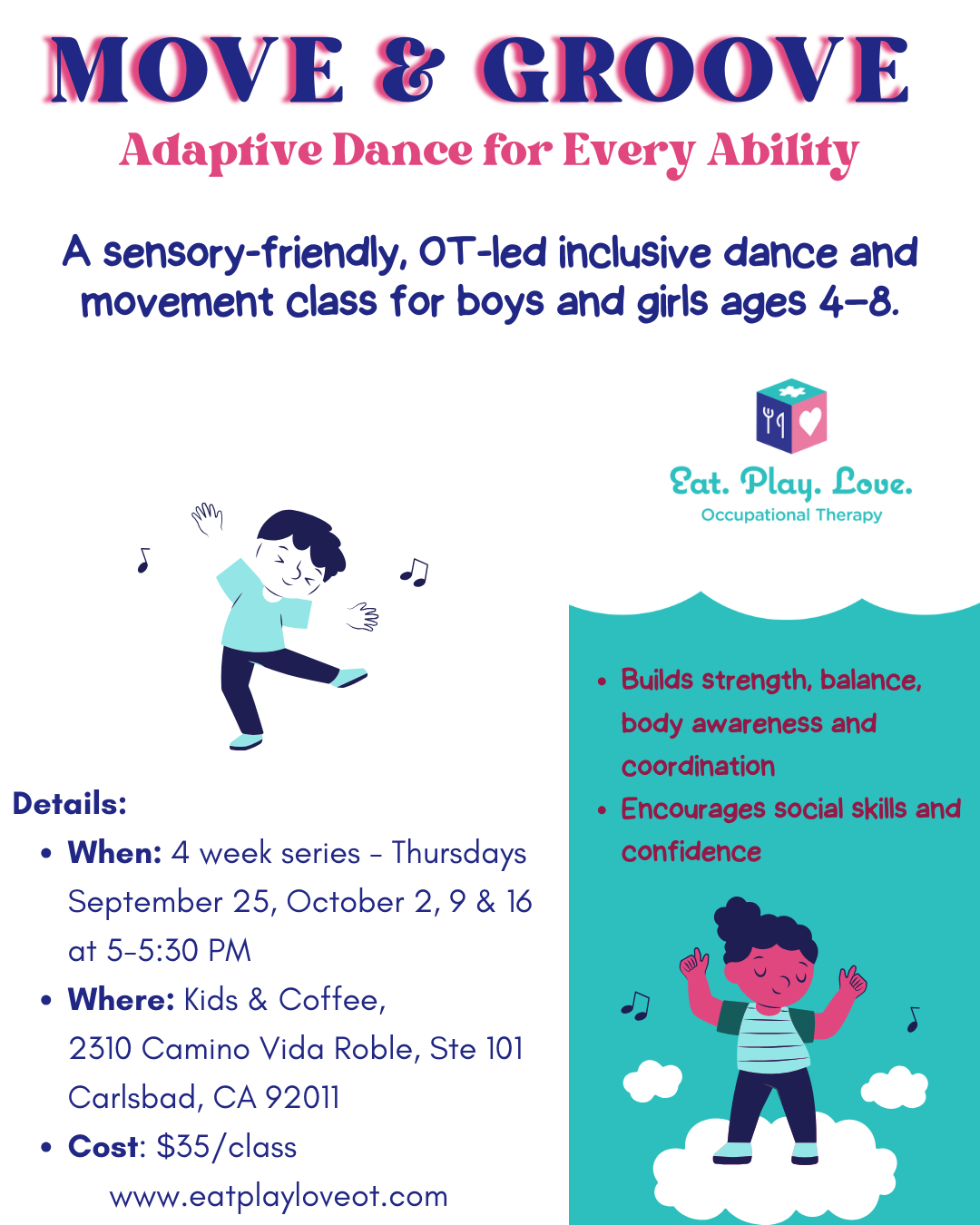Enhancing Social, Emotional, Cognitive, and Play Skills in Children Using DIR/Floortime Techniques: A Comprehensive Guide by a Certified Pediatric OT
As a pediatric occupational therapist (OT) certified in DIR/Floortime, I have witnessed firsthand the transformative impact this approach can have on children with developmental challenges. DIR/Floortime, an evidence-based model developed by Dr. Stanley Greenspan and Dr. Serena Wieder, focuses on promoting emotional and intellectual growth through engaging children in their natural interests. This blog post delves into how DIR/Floortime techniques can enhance social, emotional, cognitive, and play skills, providing practical insights and strategies that can be beneficial for parents, caregivers, and fellow therapists.
Understanding DIR/Floortime
DIR/Floortime stands for Developmental, Individual-differences, Relationship-based model. This approach emphasizes understanding each child's unique developmental profile and tailoring interactions to support their growth through meaningful and engaging activities. The model encompasses three primary components:
1. Developmental: Recognizing and supporting the stages of emotional and intellectual development.
2. Individual-differences: Addressing each child’s unique processing capacities and sensory preferences.
3. Relationship-based: Building strong, nurturing relationships that are essential for emotional and social growth.
Key Principles of DIR/Floortime
1. Following the Child’s Lead: Engaging children at their current developmental level and building upon their interests.
2. Challenging the Child: Encouraging the child to move beyond their current level of development by expanding their interactions.
3. Creating Emotional Connections: Using affective interactions to build relationships and support emotional regulation.
Social and Emotional Development Through DIR/Floortime
Building Relationships and Emotional Connections
One of the core aspects of DIR/Floortime is prioritizing the development of secure, trusting relationships between children and their caregivers or therapists. By engaging with children on their terms and at their level, therapists can create a safe and supportive environment where children feel understood and valued. This approach helps children develop:
- Emotional Regulation: Learning to manage and express emotions appropriately.
- Empathy and Understanding: Recognizing and responding to the emotions of others.
- Attachment and Trust: Building secure attachments with caregivers and peers.
Enhancing Emotional Communication
DIR/Floortime encourages children to express their emotions and needs through both non-verbal and verbal communication. Therapists use techniques such as mirroring emotions, using exaggerated facial expressions, and providing appropriate language models to facilitate emotional expression and understanding.
Addressing Behavioral Challenges
DIR/Floortime provides strategies to address behavioral challenges by understanding the underlying emotional needs and sensory processing differences of each child. By addressing these core issues, therapists can help children develop more adaptive behaviors and coping strategies.
Cognitive Development Through DIR/Floortime
Promoting Problem-Solving Skills
DIR/Floortime encourages children to engage in problem-solving activities that are meaningful and relevant to them. By following the child's interests and gently challenging them to think critically and solve problems, therapists can support cognitive development in a natural and enjoyable way.
Encouraging Symbolic Thinking
Symbolic thinking is a crucial aspect of cognitive development that allows children to understand and use symbols, such as language and pretend play. DIR/Floortime techniques encourage symbolic thinking by:
- Using Pretend Play: Engaging children in imaginative play scenarios that promote abstract thinking and creativity.
- Building on Interests: Expanding on the child's current interests to introduce new concepts and ideas.
Fostering Executive Function Skills
Executive function skills, such as planning, organizing, and flexible thinking, are essential for cognitive development. DIR/Floortime activities are designed to enhance these skills by providing structured yet flexible play scenarios that require children to adapt, plan, and execute their ideas.
Play Skills Development Through DIR/Floortime
Importance of Play in Development
Play is a fundamental aspect of childhood development, serving as a primary medium through which children explore the world, learn new skills, and interact with others. DIR/Floortime emphasizes the importance of play in fostering social, emotional, and cognitive growth.
Engaging in Meaningful Play
DIR/Floortime techniques involve engaging children in meaningful play that reflects their interests and developmental levels. This approach helps children develop:
- Social Play Skills: Learning to share, take turns, and engage in cooperative play with peers.
- Imaginative Play: Using creativity and imagination to explore different roles and scenarios.
- Physical Play: Developing gross and fine motor skills through active play.
Facilitating Interactive Play
One of the core components of DIR/Floortime is interactive play, where therapists and caregivers join in the child's play activities. This interaction is guided by the child's interests and developmental stage, ensuring that the play is both enjoyable and developmentally appropriate. Interactive play helps children:
- Develop Communication Skills: Learning to express ideas and emotions through play.
- Build Social Connections: Forming bonds with others through shared play experiences.
- Enhance Emotional Regulation: Managing emotions within the context of play.
DIR/Floortime in Practice: Strategies and Techniques
Setting the Stage for DIR/Floortime
Creating an environment conducive to DIR/Floortime involves ensuring that the play space is safe, engaging, and adaptable to the child's needs. Key considerations include:
- Sensory-Friendly Environment: Minimizing sensory distractions and providing sensory supports as needed.
- Accessible Toys and Materials: Offering a variety of toys and materials that match the child's interests and developmental level.
- Comfortable and Inviting Space: Creating a welcoming and comfortable play area where the child feels secure.
Techniques for Effective DIR/Floortime Sessions
1. Observation: Carefully observing the child’s behavior, interests, and developmental level to tailor interactions appropriately.
2. Joining In: Actively participating in the child’s play without taking over, allowing the child to lead the activity.
3. Expanding Play: Introducing new ideas and challenges to expand the child’s play and developmental skills.
4. Using Affect: Engaging the child with animated facial expressions, tone of voice, and gestures to enhance emotional connection.
5. Balancing Structure and Flexibility: Providing enough structure to support development while allowing flexibility for the child to explore and create.
The Role of Parents and Caregivers in DIR/Floortime
Involving Parents in the Process
Parents and caregivers play a crucial role in the success of DIR/Floortime. By involving them in the therapeutic process, therapists can ensure that the techniques and strategies are consistently applied across different environments. This involvement includes:
- Parent Training: Educating parents on DIR/Floortime principles and techniques.
- Collaborative Goal Setting: Working with parents to set realistic and meaningful goals for their child’s development.
- Ongoing Support: Providing continuous guidance and support to help parents implement DIR/Floortime strategies at home.
Empowering Parents
Empowering parents to use DIR/Floortime techniques can significantly enhance the child's development. By becoming active participants in their child's therapy, parents can:
- Strengthen Parent-Child Relationships: Building a deeper emotional connection with their child.
- Promote Consistency: Ensuring that therapeutic strategies are used consistently across different settings.
- Support Generalization: Helping the child generalize skills learned in therapy to everyday life.
Practical Tips for Parents
1. Create Routine Play Times: Set aside specific times each day for interactive play that follows DIR/Floortime principles.
2. Observe and Follow Your Child’s Lead: Pay attention to your child’s interests and join in their play activities.
3. Use Affective Engagement: Engage your child with animated facial expressions, gestures, and tone of voice to build emotional connections.
4. Expand on Play Themes: Introduce new ideas and challenges based on your child’s interests to promote cognitive and social development.
5. Be Patient and Supportive: Allow your child to explore and develop at their own pace, providing support and encouragement along the way.
Conclusion
DIR/Floortime is a powerful and effective approach used by pediatric occupational therapists and other healthcare and educational specialists to support the social, emotional, cognitive, and play skills development of children. By focusing on the child's individual interests and developmental levels, and building strong, nurturing relationships, DIR/Floortime provides a holistic framework for fostering growth and development. With the active involvement of parents and caregivers, children can make significant strides in their emotional regulation, social interactions, cognitive abilities, and play skills, leading to improved overall functioning and quality of life.
Want to learn more? Contact us or schedule a free consultation to see if your child could benefit from DIR/Floortime methods.











